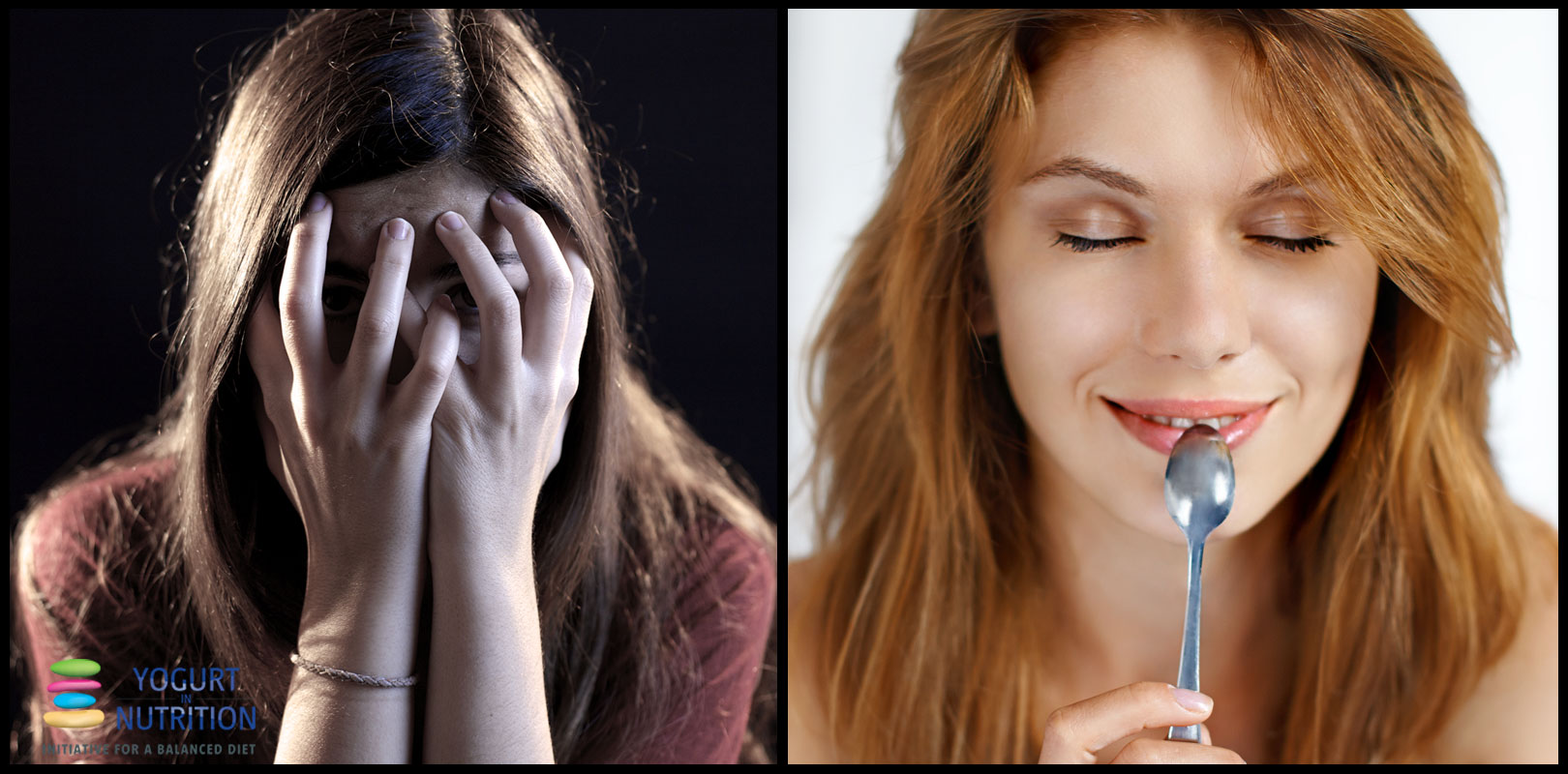The SUN project
Depression is a common mental disorder. Globally, more than 300 million people of all ages suffer from depression. It’s a huge public health problem and the cures are not easy to support, because they are associated with a number of side-effects. This is what makes the results of this Spanish longitudinal study particularly interesting. For this prospective SUN (Seguimiento Universidad de Navarra) Project a total of 14,539 men and women (mean age: 37 y), initially free of depression, were assessed during a median follow-up period of 9.3 y. The authors evaluated their prebiotic intake and yogurt consumption and registered every incident case of depression during the follow-up period.
Results suggest that high consumption of whole-fat yogurt was related to a lower risk (-22%) of depression in women of the SUN cohort. Prebiotic consumption was not significantly associated with depression risk.
How does yogurt affect the mood? Probably by modulating microbiota
In the second study, researchers at the University of Virginia School of Medicine have reversed depression symptoms in mice by feeding them with Lactobacillus, a probiotic bacteria found in live-cultures yogurt. Further, they have discovered a specific mechanism how the bacteria affect mood, providing a direct link between the health of the gut microbiome and mental health. In particularly the amount of Lactobacillus in the gut affects the level of a metabolite in the blood called kynurenine, which has been shown to drive depression. When Lactobacillus was diminished in the gut, the levels of kynurenine went up – and depression symptoms set in.
To learn more, read the original article.



